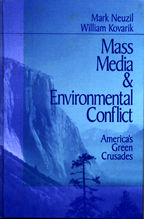Letter to the editor, Roanoke Times, Nov 26, 2018
The global reaction to the Jamal Khashoggi assassination has run along two major themes: First, that it was cruel, grossly immoral, and not at all out of character for the ruling monarchs of Saudi Arabia. But secondly, on a practical level, that we will eventually have to shrug it all off because the Saudis have the world’s largest oil reserves.
So, for most of us, our moral compass is in conflict with our practical sense of the thing.
This, however, is mistaken. The pessimistic idea that the world’s energy supply must always revolve around the Middle East is a fallacy — a mistaken belief based on unsound argument.
The argument is that the Middle East has the majority of the world’s proven oil reserves, most of which sits under the sands of the Arabian desert. Consult Wikipedia or the U.S. Energy Information Administration, and you will see the figures. The Saudis have 266 billion “proven” barrels, which, along with the rest of the Middle East, represents about half of the world’s “proven” oil reserves.
The problem is that “proven” oil reserve is not estimated on a scientifically geological basis. Instead, it is politically contrived as the foundation for (among other things) oil export quotas within OPEC. The EIA and all the world oil companies have significantly under-represented the oil reserves of Latin American and Canada, which range in the low trillions (with a “T”), according to a USGS 2000 World Oil Assessment. It is a fact that there is more actual oil in the eastern third of the Venezuelan Orinoco region than in all of the technically inaccurate “proven” reserve estimates of the world oil industry.
Of course, petroleum is not the best long term source of energy, given the serious nature of the climate crisis. But the deceptively under-counted oil reserves of North and South America ought to be recognized for their potential as a practical path away from dependence on the kingdom of Saudi Arabia.
BILL KOVARIK

 Revolutions in Communication
Revolutions in Communication Mass Media & Environmental Conflict
Mass Media & Environmental Conflict